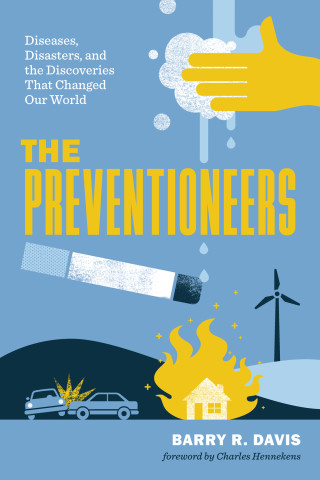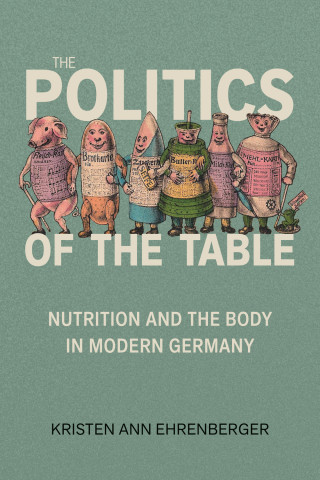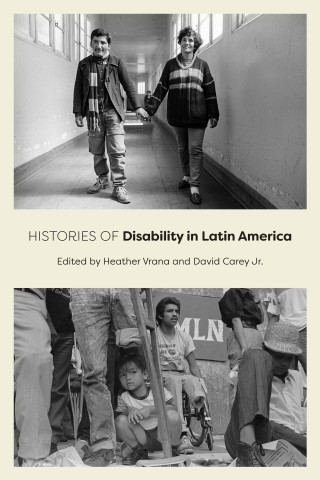
Reviews
In Migraine, Katherine Foxhall delivers a thorough and illuminating history of migraine that traces our endeavors to understand, treat and eliminate this painful condition we still know little about... Foxhall's history of migraine, unlike the self-help books, accommodates human complexity without scanting medicine's contributions to a condition that affects roughly 1 in 7 people on our planet. A lively, scholarly book about migraine, Foxhall's history is also a treatise on the human condition.
Katherine Foxhall's book, Migraine: A History, is a remarkable volume on migraine and its history from the second to the 21st century... Written by a historian with an open mind to all aspects of migraine and medical history, the book stands alone as a current best historical work on the subject... For anyone with any interest in migraine, this is a must-read, and one that will be rewarded with compelling erudition, and the knowledge that the history of migraine matters a lot. I recommend it highly.
I had not come across such a comprehensive and concise book written about [migraine]... This should be on the student nurse and doctor reading list and any clinician caring for patients as this is important to understand migraines and the journey along the way – we are still learning.
Foxhall has written the most comprehensive, well-researched, and in-depth history of migraine in existence. Drawing on completely original research, this book is a truly wonderful compendium of Western medicine's approach to and treatment of migraine over the centuries.
A fascinating and very well-written book. With verve and passion, Katherine Foxhall issues a call to arms that uses history to make its case.
Katherine Foxhall is one of the most illuminating young historians of science and medicine writing today. Her history of the migraine from the second century to the present is an enthralling story. It is a must-read for migraine sufferers as well as their physicians and friends. I couldn't put it down.
In this comprehensive account, Foxhall assesses over one thousand years of Western experience with migraine. Paying close attention to ways in which gender, class, and race in particular shape responses to migraine, the book amplifies the voices of people who for too long have been silenced and doubted.
Despite being recognised since time immemorial, migraine continues to elude a 'cure.' In her eloquent book, Katherine Foxhall looks at migraine's past with the eyes of the present, providing a fascinating insight into how societal changes have affected the perception of this condition and the impact that has had on management.
In her meticulously researched book, Katherine Foxhall offers a sensitive and humane account of a common condition: migraine. Wide-ranging in terms of its sources and covering a generous timespan, it significantly enhances our understanding of medical theories and treatments in both past and present, gives weight to patient experiences, and demonstrates the valuable contributions historians can make to contemporary debates about suffering and pain.
Book Details
List of Figures
Acknowledgments
Note on Terminology and Names
Chapter 1. Introduction: Programmed In?
Chapter 2. The "Beating of Hammers": Classical and Medieval Approaches to Hemicrania
Chapter 3. "Take
List of Figures
Acknowledgments
Note on Terminology and Names
Chapter 1. Introduction: Programmed In?
Chapter 2. The "Beating of Hammers": Classical and Medieval Approaches to Hemicrania
Chapter 3. "Take Housleeke, and Garden Wormes": Migraine Medicine in the Early Modern Household
Chapter 4. A "Deadly Tormenting Megrym": Expanding Markets and Changing Meanings
Chapter 5. "The Pain Was Very Much Relieved and She Slept": Gender and Patienthood in the Nineteenth Century
Chapter 6. "As Sharp as If Drawn with Compasses": Victorian Vision, Men of Science, and the Making of Modern Migraine
Chapter 7. "A Shower of Phosphenes": Twentieth-Century Stories and the Medical Uses of History
Chapter 8. "Happy Hunting Ground": Conceptual Fragmentation and Medication in the Twentieth Century
Chapter 9. "If I Could Harness Pain": The Migraine Art Competitions, 1980-1987
Chapter 10. Conclusion
Notes
Bibliography
Index






